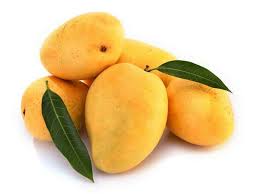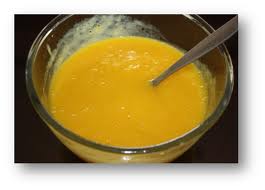Feeding Ripe Mango will Protect your Baby from Summer heat
 Mango is popularly known as the King of fruits. Mango is one of the exotic fruits in the world with several health benefits. Mangoes are easily digestible and the important health benefits from mangoes for babies include protection of eyesight, fights microbial infections, improvement in brain development and many more.
Mango is popularly known as the King of fruits. Mango is one of the exotic fruits in the world with several health benefits. Mangoes are easily digestible and the important health benefits from mangoes for babies include protection of eyesight, fights microbial infections, improvement in brain development and many more.
Can mangoes be fed to children?
This is a question young parents have these days whether mangoes can be served to babies. Yes, mango can be served to babies. Pediatricians also recommend introducing fruits such as mango, apple, avocado, banana, etc and vegetables such as carrot, peas, green beans which are pureed.
Why opt Mango fruit?
Mango is an exotic and seasoned fruit. Mangoes contain several health benefits that your baby needs for developing a strong body and mind.
Fruits such as mangoes contain high amount of vitamins, minerals and carbohydrates. It would be an understatement to say that vitamins and minerals are essential for your baby. In fact, underestimating their role in baby’s growth can result in deficiencies later on.
Health benefits of Mango for babies
Easily digestible: Mango fruit puree is easily digestible, especially for infants. Feeding babies with mangoes is also advantageous because, mangoes contain enzymes and biochemicals such as esters, terpenes and aldehydes which promote digestion.
Boost eyesight: New born babies eyesight is not as much developed as adult humans. Sight efficiency develops during the course of babies growth in the subsequent months. During this time, good supply of vitamin A is needed for proper and quick development of eye sight. Ripe mango can be a very good choice because it is high in vitamin A.
Fights microbial infections: Eating mango fruit promotes epithelial function in the body and thereby the attack of microbes is reduced to a significant extent. The microbes that normally attack babies can causes common colds, rhinitis, sinusitis, etc.
Read: How to keep your Baby Healthy during Weather changes?
Strengthens immunity: Infants and children have a weak immune system and is in the developing stage. In this duration any food fed that promotes the immune function is a huge welcome. Mangoes strengthens immune system in your baby. The high carotene and beta-carotene content present in mangoes promotes the immune system and makes it stronger.
Enables brain development: Brain development is critical for babies as body development. By consuming mangoes Brain functioning improves for babies. Mangoes are rich in vitamin B-6 which helps in improved brain functioning. Apart from vitamin B-6, mangoes contain glutamine acid and it is known to improve memory and concentration.
Protection against sunstroke: Another key benefit of mangoes during summer is their protection against sunstroke and hot winds. Unripe mangoes can either be cooked in hot ashes or steam boiled and the pulp obtained can be made into a squash mixed with sugar and water. This juice taken during hot summers can protect against dehydration and sunstroke. This is fit to be given for toddlers who are up and running all day during summers.
Refer: Quick tips to make Healthy and Refreshing Green Mango Drink at home
Recipe For Mango puree
 Wash mango in water and peel the skin. Cut the mango pulp and mash it thoroughly or grind in mixer for 1 to 2 mins until soft. Sieve thru’ strainer and feed your baby. Half cup will be sufficient.Serve with a baby spoon.
Wash mango in water and peel the skin. Cut the mango pulp and mash it thoroughly or grind in mixer for 1 to 2 mins until soft. Sieve thru’ strainer and feed your baby. Half cup will be sufficient.Serve with a baby spoon.
As your baby grows you can combine banana, milk ,yogurt, sweet potato, melons and bring in variety for your baby.
Further read: Recipes for baby food and Wheat flour porridge
Watch outs while feeding mangoes
Baby’s age: Make sure to feed mango puree to babies who are at least 6 months of age and those for whom solid or semi solid food has already started. Mango puree is easily digestible for infants.
Texture of mango fruit: The texture of the mango fruit is very important. The mashed mango puree must not contain any fibers which will be difficult for the baby to swallow. Filter the mango puree thoroughly.
Unripe mango-do not feed: Unripe mango is not to be fed to infants. Unripe mango could be sour and babies might dislike it and may poop all that had been fed earlier. Unripe mangoes can be indigestible to many infants.
Watch out for allergies: Mango being a tropical fruit might be allergic to few people. Consult the pediatrician and take advice if there is history of food allergies in your family.
Mango is a seasonal fruit. Ensure your family gets the maximum benefit by eating mango in right quantities. Feeding Ripe Mango will Protect your Baby from Summer heat. Your baby’s gonna love the mango puree that is great for growth and brain development.
Leave your opinion and views in the comments section.
Related posts:










Hi Kalpana
Sorry for the delayed response.
Is it summer out there too? There should not be a problem by feeding mango and nachani/ ragi. Probably it is due to external heat or indigestion for the baby. If you observe fever or continuous vomiting take your baby to the medical practitioner.
Normally ragi porridge is not given in the nights as it is cooling for the body and will develop phlegm.
Take care of your little one. Best wishes. Ranbir Kaur
my 6 month baby had vomit during eating nachani (Eleusine coracana) yesterday night and the contain in vomit is mango. but the baby ate mango on same day noon so i want to know that mango is the reason of vomit..plz suggest….